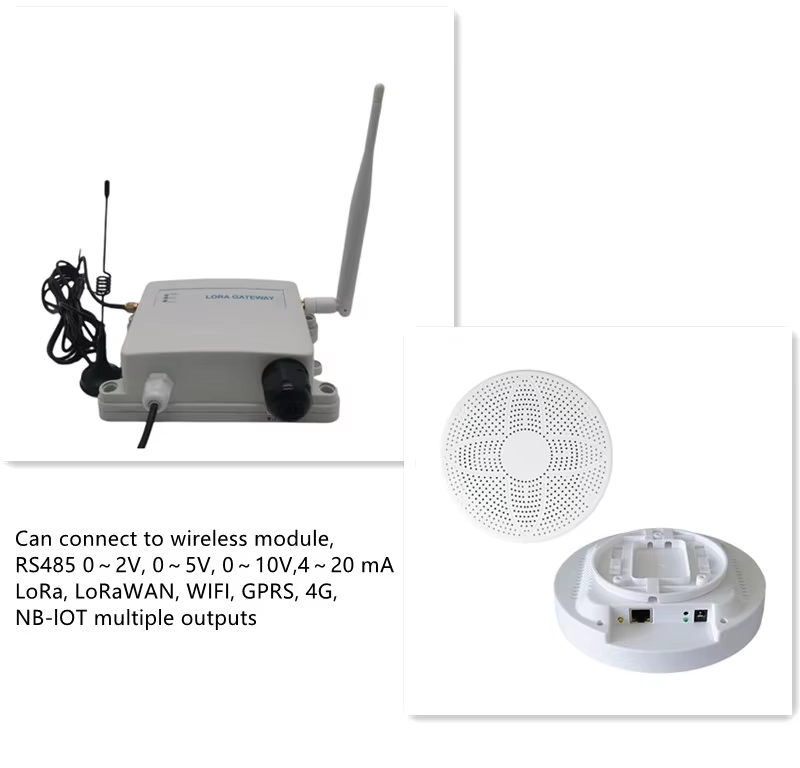In recent years, the global demand for gas sensors has surged significantly. Driven by heightened environmental awareness, stringent regulatory standards, and technological advancements, various countries are increasingly relying on gas sensors across multiple sectors. Key regions experiencing substantial demand for gas sensors include the United States, China, Germany, and India, with applications spanning from industrial safety to environmental monitoring and smart city development.
Key Markets for Gas Sensors
-
United States
The United States has been at the forefront of adopting gas sensor technologies. With rigorous safety regulations in industries like oil and gas, manufacturing, and healthcare, gas sensors are crucial for detecting harmful gases such as methane, carbon monoxide, and volatile organic compounds (VOCs). Moreover, the growing focus on smart city initiatives is driving the demand for integrated gas monitoring systems in urban environments, ensuring air quality and safety for residents. -
China
China is witnessing a rapid industrial expansion, which has led to an increased focus on air quality and safety. The government has implemented stringent regulations to combat pollution, prompting factories and urban areas to deploy gas sensors for real-time monitoring. Areas such as waste management, automotive, and HVAC systems are seeing a heightened integration of gas sensors to ensure compliance with environmental standards. -
Germany
As a leader in environmental technology, Germany has a robust market for gas sensors, particularly in the automotive sector where they are used for emission control and improving vehicle safety. Additionally, gas sensors play a vital role in monitoring indoor air quality and enhancing building management systems, aligning with the country’s commitment to sustainability and energy efficiency. -
India
In India, rapid urbanization and industrial growth are increasing the demand for gas sensors in various sectors, including healthcare, construction, and agriculture. With air pollution becoming a major public health concern, gas sensors are critical for monitoring air quality and ensuring the safety of workers in industrial settings. Additionally, smart agricultural practices are leveraging gas sensors to optimize the use of fertilizers and pesticides, thereby improving crop yields and sustainability.
Applications of Gas Sensors
Gas sensors are utilized in a myriad of applications across different industries. Some of the prominent applications include:
- Environmental Monitoring: Real-time monitoring of air quality and pollutants to ensure compliance with environmental regulations.
- Industrial Safety: Detecting hazardous gases in workplaces to minimize the risk of accidents and protect worker health.
- Automotive Emissions Control: Monitoring and controlling vehicle emissions to meet regulatory standards and improve fuel efficiency.
- Healthcare: Using gas sensors for detecting and measuring exhaled gases in respiratory health monitoring.
- Agriculture: Monitoring soil and air composition to improve farming practices and enhance crop safety.
Advanced Solutions for Gas Sensor Integration
To further enhance the capabilities of gas sensing applications, advanced technological solutions are essential. Honde Technology Co., Ltd. provides a comprehensive range of solutions, including a complete set of servers and software wireless modules that support various communication protocols, including RS485, GPRS/4G, WiFi, LORA, and LORAWAN. These technologies allow seamless integration and real-time data transmission, making it easier for industries to monitor gas levels and respond promptly to potential hazards.
For more information on air gas sensors and to explore our innovative solutions, please contact Honde Technology Co., Ltd. at info@hondetech.com, visit our website at www.hondetechco.com, or call us at +86-15210548582.
Conclusion
The global demand for gas sensors continues to expand as countries prioritize safety, environmental sustainability, and smart technology integration. With applications ranging from industrial safety to urban air quality monitoring, gas sensors are indispensable tools that enhance public health and safety. As technology evolves, the role of gas sensors will only become more critical in shaping a safer and more sustainable future.
Post time: Apr-23-2025


